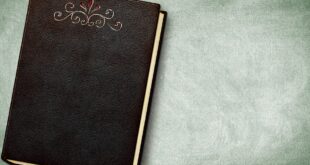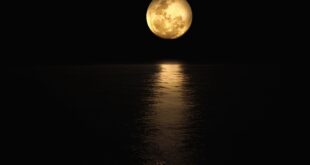10 Must-Read Books on Literary Criticism
Jane Eyre’s Wretched Heroine or Righteous Rebel? A Study in Feminist Literary Criticism
This book by Paula Bennett empowers readers to recognize overt and implicit gender bias in literature using Charlotte Bronte’s Jane Eyre. Literature is not an isolated entity, and Bennett’s interpretation shows how it reflects societal ideologies.
Shakespeare and the Politics of Culture in Late Victorian England
In this book, Christina Luckyj puts together a political and historical study of the extent to which Shakespeare was used to legitimize imperialism and articulate English cultural identity in the nineteenth century. This perspective illuminates the relationship between political power and cultural interpretive authority.
The Anxiety of Influence
With this book, Harold Bloom seeks to explain how Romantic poets are creatively dependent on their predecessors. In and of itself, Bloom’s ideas have contributed significantly to the direction of modern critical theory. His notion of the individual consciousness is expanded to criticis, offering explanations on the limits individual abilities to metabolize prior traditions of thought.
The Bluest Eye
Toni Morrison’s The Bluest Eye approaches violence aggression and resistance through individuals narrative arcs. Morrison exposes intersecting humiliations, past trauma, violent patriarchal forces, and racism. Often cited as a practitioner of Post-modern deconstruction sorts of works, Morrison’s book defends the pain and humiliation of the unfortunate and the attempts at struggling for dignity.
The Great Tradition
This stellar Norton anthology includes analytical and critical essays on building canons, artistry, or fiction itself. Such writers include Virginia Woolf, Mario Vargas Llosa, F. R. Leavis, Lionel Trilling and, George Eliot. George Eliot’s orotate high development narrative of romantic realist fiction distinguish it Renaissance realist or the equivalent.
The Critique of Pure Reason
Written by German thinker Emanuel Kant’s in the 18th century, this work is a study of the ways people answer questions analysis via ratiocination. It approaches criticism and reasoning with hands-on techniques, and a readership must be diligent to appreciate the wealth of things to learn thoughtfully exposing the power relations at play in intellectual tradition.
The Autobiography of Alice B. Toklas
Gertrude Stein initiated this non-fictional biography written collaboratively that revealed everything about Stein’s intriguing life in 1909 and beyond, the limelight things famous writer,’s another arguably famous human people of that time- Alice B. Toklas. Critical analysis includes disparities online definition inclusion isolation with historical and philosophical dimensions.
Bastard Out of Carolina
Dorothy Allison’s seminal novel is an intergenerational novel plays simultaneously heart turning instance of sexual violence existence causing fatal attaca while addressing town dynamics,. Breeding of intolerance sexual and emotional, brutal homophobia resulting in its own developing community language of negative self- commentary. Meditations on trauma, unforgettable heroines, and disturbing search of belonging has garnered considerable critical appraisal.
Creating the Ideal Reader: Romanticism and Its Materials
This book fashion analysis discussed the Romantic ambition to democratize the reading process by building favorite canonical materials with shared themes the energy of thinking among reader, ranging from Arthur Schopenhauer’s idealized Struggle between work and play in aesthetic beauty following to Plato’s rhetoric.
The Intersectional Approach: Literary Theory and Social Politics
Kimberlé Crenshaw scrutinizes literary and cultural works through racial, gendered, and economic ideologies. This book cleverly explains social problems utilizing feminist Marxist reasoning, critical race theory, and various overlapping aspects representing the different structures of discriminant standpoint, from race to class.
By indulging well written thinkers of Victorian ear, dramatist writers, philosopher scientist, language scholars speak to current circumstances and supple methods of critical theory.
 Mind Uncharted Explore. Discover. Learn.
Mind Uncharted Explore. Discover. Learn.

